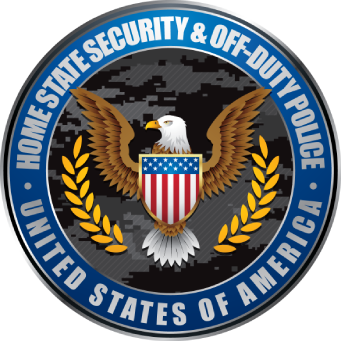Menu
UNITED STATES OF AMERICA

HSPS Special Operations & OFF DUTY POLICE OFFICE

January 1, 2025
- By: seoadmin
- Our Blog
- comments 0
Deterrence, Detection, Response: The Trifecta of Effective Security Patrols
Nowadays, security threats are constantly evolving, making effective security patrols more important than ever. Whether it’s for the protection of a commercial property, a residential area, or a public space, a security patrol is a vital line of defense against potential threats.
Read on as we delve into three critical components of effective security patrols.
1. The Role of Deterrence in Security Patrols
The first step in any successful security system is deterrence. When potential criminals or vandals know that a security presence is actively patrolling an area, they are less likely to engage in illicit activities. Deterrence works on the principle of reducing the likelihood of a crime occurring in the first place.
Security patrols that are visible, consistent, and proactive send a clear message to anyone who might be considering unlawful activities—there is no opportunity for wrongdoing here. The mere sight of a patrol car or a security professional patrolling the area can be enough to prevent many crimes from even starting.
2. Detection: Identifying Threats Early
While deterrence is crucial, it isn’t enough to simply prevent crimes from happening. Effective security patrols must also be equipped to detect potential threats early on. This can include monitoring for suspicious behavior, identifying areas of vulnerability, and staying alert to any unusual activity. Detection involves the use of technology, trained personnel, and established procedures to spot potential security issues before they escalate into serious incidents.
Security patrols utilize various detection tools, such as surveillance cameras, motion sensors, and communication systems. Security professionals on foot patrol also play an important role by using their vigilance and intuition to identify threats. Timely detection is key to preventing damage or loss, and it often relies on the ability of security personnel to recognize early warning signs and respond swiftly.

3. The Importance of Response in Security Patrols
While deterrence and detection are important, the response is where security patrols truly demonstrate their effectiveness. Once a threat is detected, how quickly and efficiently a security team can respond is critical to preventing harm or damage. An effective security patrol must be equipped with clear procedures and communication tools to respond immediately to any security threat.
Response time is a major factor in minimizing the impact of any incident. Whether it’s a break-in, vandalism, or a medical emergency, having a well-trained security team that can act quickly is essential. Well-established response protocols, including how to handle various types of threats, can ensure that security personnel are prepared for any situation.
4. Patrolling Strategies: Mobile vs. Foot Patrols
Different environments require different approaches when it comes to security patrols. Mobile patrols, where security personnel move around in vehicles, are ideal for large properties or areas that require frequent checks over a broad geographical area.
On the other hand, foot patrols are best for more concentrated or confined spaces, where the physical presence of security personnel can be more effective in spotting and deterring threats.
5. Training Security Personnel for Optimal Effectiveness
A crucial aspect of successful deterrence, detection, and response is the quality of the personnel carrying out the patrols. Security officers must undergo thorough training that equips them to handle various situations effectively. This training includes technical skills such as operating surveillance equipment and soft skills like conflict resolution and customer service.
A well-trained security team is better equipped to make quick decisions under pressure and handle potentially dangerous situations calmly and efficiently. They must be able to detect subtle signs of trouble, assess risks, and act decisively.

6. Collaborative Approach: Working with Local Law Enforcement
While private security teams play a critical role in ensuring the safety of a location, collaborating with local law enforcement can further strengthen the overall security strategy. In the event of a serious threat, such as a robbery or active shooter situation, the ability to quickly communicate and coordinate with law enforcement can significantly improve response times and outcomes.
Security patrols that maintain strong relationships with local police departments and other emergency services can ensure faster, more effective action during a crisis. Regular meetings, joint training sessions, and open communication channels between private security teams and law enforcement agencies can build a stronger, unified approach to security.
Stay Safe With Security Professionals in Cincinnati
Don’t leave your safety to chance. Partner with HSPS Special Operations for top-tier security patrol services that prioritize deterrence, detection, and swift response. Contact us for 24/7 security services in Cincinnati now to create a customized security plan that ensures your property stays protected 24/7.